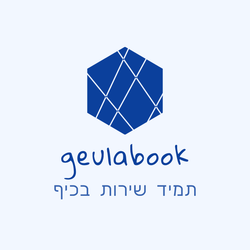Rabbi David Kimchi - Radak - a professional commentator and corrector of the Bible. He was born in Narbonne in France in 1160 and died there in 1235. He was the youngest child of Rabbi Yosef Kimchi. A book of genealogy wrote that it was said about him, "If there is no flour, there is no Torah", that is: because without an interpretation of Radak - Kimchi it is impossible to study the Torah.
Radak wrote commentaries on the Torah - to the book of Genesis, to the first and last prophets, as well as to the books of Psalms and Divrei haYamim. Rabbi David Kimchi's commentaries focus on a simplified approach and are anchored in principles from the field of language, punctuation and especially grammar, the interpretation of words and tradition. In his commentary, Radak also referred to events historical and engaged in determining the time of the prophets.
The Radak's father, Rabbi Yosef Kimchi (the Rikam) was a linguist and biblical commentator from Spain. Following the persecution of the Mujahideen, the Kimhi family fled to Provence in the south of France, and settled in the city of Narbonne. Apparently, that's where the Radek was born. The Radak learned Torah and devotion from his father and from his older brother, Rabbi Moshe Kimchi, who was also famous as an important grammarian and a trailblazer and a biblical commentator. Radak was particularly influenced - both in grammar and interpretation - by the way of his brother Rabbi Moshe, whom he raised and taught. His books and commentaries received a wide resonance and he is considered one of the greatest commentators and linguists of the people of Israel. In his grammar book, Makshul, Radak learned much of the teachings of the grammarians The ancients are Rabbi Yehuda Hayuj and Rabbi Yonah Ibn Janach.
His main method in the book is the way of his brother Rav Moshe, who renewed a number of important rules in the field of grammar. The first part of the essay ("the grammar part") is a grammar book, and the second part ("the interest part") is a dictionary of the Hebrew language arranged in alphabetical order according to roots, and over time it was called "the book of roots". Some of his grammatical insights were used later in the Renaissance. Radak studied philosophy and science a lot, and was greatly influenced by Eben Ezra and Maimonides. During the controversy over the Rambam's writings, Radak sided with the Rambam's supporters.
His commentary to the Prophets was printed in the various editions of "Mikraot Gdolot".
The order of writing a commentary on the Tanach, according to a study of its commentaries:
- Divrei haYamim (דברי הימים)
- Psalms (Tehilim - תהילים)
- Neviim ahronim (נביאים אחרונים)
- Neviim Rishonum (נביאים ראשונים)
- Humash Bereshit (חומש בראשית)

